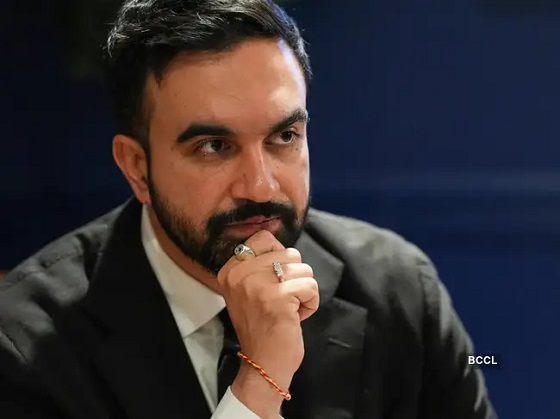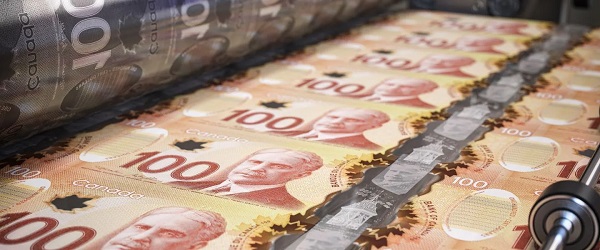Uncategorized
Trump, Kim share smiles, dinner before nuke talks

HANOI, Vietnam — U.S. President Donald Trump and North Korea’s Kim Jong Un, leaders of two nations with a long history of hostilities, opened their second summit Wednesday with smiles, hopeful talk and a friendly dinner that will set the stage for more difficult talks to come about curbing North Korea’s pursuit of nuclear weapons.
Facing widespread skepticism about what they can achieve, the two men exchanged a warm handshake before a phalanx of alternating American and North Korean flags before disappearing for a private, 30-minute pre-dinner chat.
“A lot of things are going to be solved I hope,” Trump said as dinner commenced. “I think it will lead to a wonderful, really a wonderful situation long-term.”
Kim, for his part, said that his country had been “misunderstood” and viewed with “distrust.”
“There have been efforts, whether out of hostility or not, to block the path that we intend to take,” he said. “But we have overcome all these and walked toward each other again and we’ve now reached Hanoi after 261 days” since their first meeting in Singapore.
“We have met again here and I am confident that we can achieve great results that everyone welcomes.”
For all of the optimistic talk, there was broad concern that Trump, eager for an agreement, would give Kim too much and get too little in return — perhaps a peace declaration for the Korean War that the North could use to eventually push for the reduction of U.S. troops in South Korea, for example, or sanctions relief that could allow Pyongyang to pursue lucrative economic projects with the South.
Skeptics insist Trump must first get real progress on the North abandoning its nuclear weapons before giving away important negotiating leverage.
Asked if this summit would yield a political declaration to end the Korean War, Trump told reporters: “We’ll see.”
The two leaders were joined for an intimate dinner by Secretary of State Mike Pompeo, acting White House chief of staff Mick Mulvaney, Kim Yong Chol, a former military spy chief and Kim’s point man in negotiations, and North Korean Foreign Affairs Minister Ri Yong Ho. Interpreters for each side also attended.
As Trump reached for a summit victory abroad, back in Washington his former personal attorney, Michael Cohen, was prepared to deliver explosive testimony on Capitol Hill that the president is a “racist,” a “conman” and a “cheat.” Unable to ignore the drama playing out thousands of miles away, Trump tweeted that Cohen, who has been sentenced to three years in prison for lying to Congress, “did bad things unrelated to Trump” and “is lying in order to reduce his prison time.”
Anticipation for what could be accomplished at the summit ran high in Hanoi. But the carnival-like atmosphere in the Vietnamese capital, with street artists painting likenesses of the leaders and vendors hawking T-shirts showing Kim waving and Trump giving a thumbs-up, contrasted with the serious items on their agenda: North Korea’s nuclear weapons program and peace on the Korean Peninsula.
Trump has been trying to convince Kim that his nation could thrive economically like the host country, Vietnam, if he would end his nuclear weapons program.
“I think that your country has tremendous economic potential — unbelievable, unlimited,” Trump said. “I think that you will have a tremendous future with your country — a great leader — and I look forward to watching it happen and helping it to happen.”
The summit venue, the colonial and neoclassical Sofitel Legend Metropole in the old part of Hanoi, came with a dose of history: Trump was trying to talk Kim into giving up his nuclear arsenal at a hotel with a bomb shelter that protected the likes of actress Jane Fonda and singer Joan Baez from American air raids during the Vietnam War.
Trump and Kim first met last June in Singapore, a summit that was long on historic pageantry but short on any enforceable agreements for North Korea to give up its nuclear arsenal. North Korea has spent decades, at great economic sacrifice, building its nuclear program, and there are doubts that it will give away that program without getting something substantial from the U.S.
The Korean conflict ended in 1953 with an armistice, essentially a cease-fire signed by North Korea, China and the 17-nation, U.S.-led United Nations Command. A peace declaration would amount to a political statement, ostensibly teeing up talks for a formal peace treaty that would involve other nations.
North and South Korea also want U.S. sanctions dialed back so they can resurrect two major symbols of rapprochement that provided much-needed hard currency to North Korea: a jointly run factory park in Kaesong and South Korean tours to the North’s scenic Diamond Mountain resort.
Ahead of the private dinner, White House press secretary Sarah Sanders excluded some U.S. reporters, including The Associated Press, after reporters asked questions of Trump during a previous photo opportunity. “Due to the sensitive nature of the meetings we have limited the pool for the dinner to a smaller group,” she said in a statement.
___
AP journalists Hau Dinh and Hyung-jin Kim in Hanoi and Kim Tong-hyung in Seoul, South Korea, contributed to this report.
___
Follow all of AP’s summit coverage at https://apnews.com/Trump-KimSummit
Jonathan Lemire, Foster Klug And Deb Riechmann, The Associated Press
Uncategorized
Trump Admin Establishing Council To Make Buildings Beautiful Again


From the Daily Caller News Foundation
By Jason Hopkins
The Trump administration is creating a first-of-its-kind task force aimed at ushering in a new “Golden Age” of beautiful infrastructure across the U.S.
The Department of Transportation (DOT) will announce the establishment of the Beautifying Transportation Infrastructure Council (BTIC) on Thursday, the Daily Caller News Foundation exclusively learned. The BTIC seeks to advise Transportation Secretary Sean Duffy on design and policy ideas for key infrastructure projects, including highways, bridges and transit hubs.
“What happened to our country’s proud tradition of building great, big, beautiful things?” Duffy said in a statement shared with the DCNF. “It’s time the design for America’s latest infrastructure projects reflects our nation’s strength, pride, and promise.”
“We’re engaging the best and brightest minds in architectural design and engineering to make beautiful structures that move you and bring about a new Golden Age of Transportation,” Duffy continued.
Mini scoop – here is the DOT’s rollout of its Beautifying Transportation Infrastructure Council, which will be tasked with making our buildings beautiful again. pic.twitter.com/
9iV2xSxdJM — Jason Hopkins (@jasonhopkinsdc) October 23, 2025
The DOT is encouraging nominations of the country’s best architects, urban planners, artists and others to serve on the council, according to the department. While ensuring that efficiency and safety remain a top priority, the BTIC will provide guidance on projects that “enhance” public areas and develop aesthetic performance metrics.
The new council aligns with an executive order signed by President Donald Trump in August 2025 regarding infrastructure. The “Making Federal Architecture Beautiful Again” order calls for federal public buildings in the country to “respect regional architectural heritage” and aims to prevent federal construction projects from using modernist and brutalist architecture styles, instead returning to a classical style.
“The Founders, in line with great societies before them, attached great importance to Federal civic architecture,” Trump’s order stated. “They wanted America’s public buildings to inspire the American people and encourage civic virtue.”
“President George Washington and Secretary of State Thomas Jefferson consciously modeled the most important buildings in Washington, D.C., on the classical architecture of ancient Athens and Rome,” the order continued. “Because of their proven ability to meet these requirements, classical and traditional architecture are preferred modes of architectural design.”
The DOT invested millions in major infrastructure projects since Trump’s return to the White House. Duffy announced in August a $43 million transformation initiative of the New York Penn Station in New York City and in September unveiledmajor progress in the rehabilitation and modernization of Washington Union Station in Washington, D.C.
The BTIC will comprise up to 11 members who will serve two-year terms, with the chance to be reappointed, according to the DOT. The task force will meet biannually. The deadline for nominations will end Nov. 21.
Uncategorized
New report warns WHO health rules erode Canada’s democracy and Charter rights

The Justice Centre for Constitutional Freedoms has released a new report titled Canada’s Surrender of Sovereignty: New WHO health regulations undermine Canadian democracy and Charter freedoms. Authored by Nigel Hannaford, a veteran journalist and researcher, the report warns that Canada’s acceptance of the World Health Organization’s (WHO) revised International Health Regulations (IHR) represents a serious erosion of national independence and democratic accountability.
The IHR amendments, which took effect on September 19, 2025, authorize the WHO Director-General to declare global “health emergencies” that could require Canada to follow directives from bureaucrats in Geneva, bypassing the House of Commons and the will of Canadian voters.
The WHO regards these regulations as “binding,” despite having no ability or legal authority to impose such regulations. Even so, Canada is opting to accept the regulations as binding.
By accepting the WHO’s revised IHR, the report explains, Canada has relinquished its own control over future health crises and instead has agreed to let the WHO determine when a “pandemic emergency” exists and what Canada must do to respond to it, after which Canada must report back to the WHO.
In fact, under these International Health Regulations, the WHO could demand countries like Canada impose stringent freedom-violating health policies, such as lockdowns, vaccine mandates, or travel restrictions without debate, evidence review, or public accountability, the report explains.
Once the WHO declares a “Pandemic Emergency,” member states are obligated to implement such emergency measures “without delay” for a minimum of three months.
Importantly, following these WHO directives would undermine government accountability as politicians may hide behind international “commitments” to justify their actions as “simply following international rules,” the report warns.
Canada should instead withdraw from the revised IHR, following the example of countries like Germany, Austria, Italy, Czech Republic, and the United States. The report recommends continued international cooperation without surrendering control over domestic health policies.
Constitutional lawyer Allison Pejovic said, “[b]y treating WHO edicts as binding, the federal government has effectively placed Canadian sovereignty on loan to an unelected international body.”
“Such directives, if enforced, would likely violate Canadians’ Charter rights and freedoms,” she added.
Mr. Hannaford agreed, saying, “Canada’s health policies must be made in Canada. No free and democratic nation should outsource its emergency powers to unelected bureaucrats in Geneva.”
The Justice Centre urges Canadians to contact their Members of Parliament and demand they support withdrawing from the revised IHR to restore Canadian sovereignty and reject blind compliance with WHO directives.
-

 Censorship Industrial Complex2 days ago
Censorship Industrial Complex2 days agoHow the UK and Canada Are Leading the West’s Descent into Digital Authoritarianism
-

 Business2 days ago
Business2 days agoCapital Flight Signals No Confidence In Carney’s Agenda
-

 International2 days ago
International2 days agoThe capital of capitalism elects a socialist mayor
-

 Business22 hours ago
Business22 hours agoCarney’s budget spares tax status of Canadian churches, pro-life groups after backlash
-

 Business1 day ago
Business1 day agoPulling back the curtain on the Carney government’s first budget
-

 Daily Caller1 day ago
Daily Caller1 day agoUS Eating Canada’s Lunch While Liberals Stall – Trump Admin Announces Record-Shattering Energy Report
-

 Justice22 hours ago
Justice22 hours agoCarney government lets Supreme Court decision stand despite outrage over child porn ruling
-

 Daily Caller17 hours ago
Daily Caller17 hours agoUN Chief Rages Against Dying Of Climate Alarm Light










